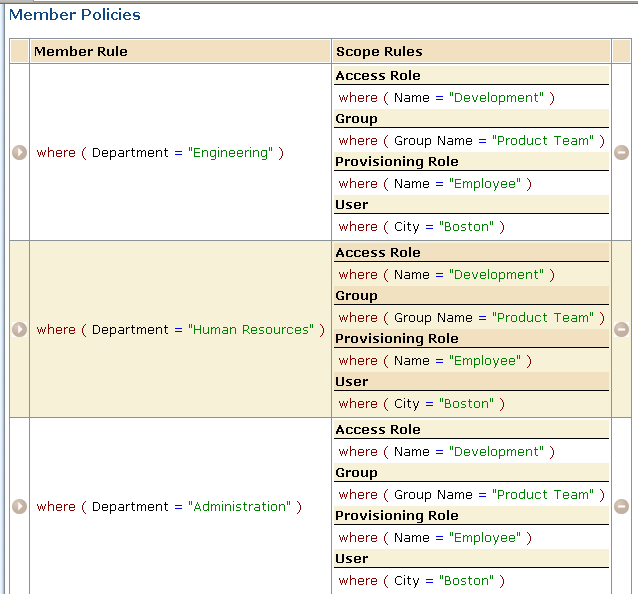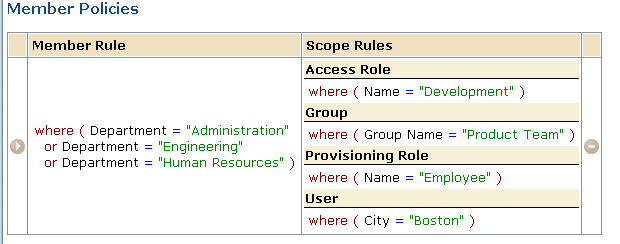

Each rule in a role policy requires a set of objects in the object store. When CA IdentityMinder evaluates a rule, it loads these objects and performs any required user store searches.
The following example shows a member policy that includes three member rules. Each rule includes four scope rules.

In this example, CA IdentityMinder creates the objects and performs the user store searches described in the following table when evaluating and applying the member policy.
|
Rule |
Policy Objects |
Potential User Store Searches |
|---|---|---|
|
5 |
5 (one for each rule definition object) |
|
5 |
5 |
|
5 |
5 |
In this example, CA IdentityMinder creates 15 objects and executes 15 directory searches to determine membership and scope.
To limit the number of policy objects and user store searches that CA IdentityMinder performs, combine rules into complex expressions. The following example specifies the same entitlements in the first example as one member rule.

In this example, CA IdentityMinder creates only ten policy objects and performs only five user store searches.
|
Rule |
Policy Objects |
Potential User Store Searches |
|---|---|---|
|
5 |
5 |
|
Copyright © 2013 CA.
All rights reserved.
|
|